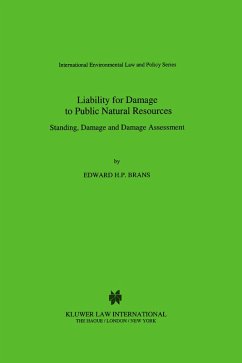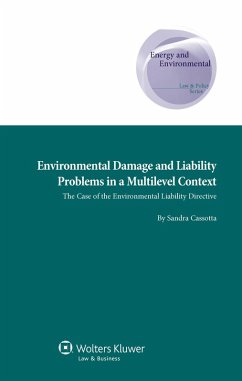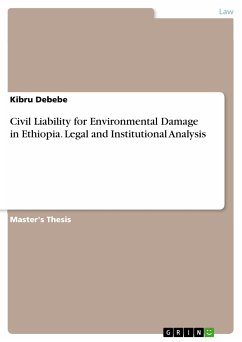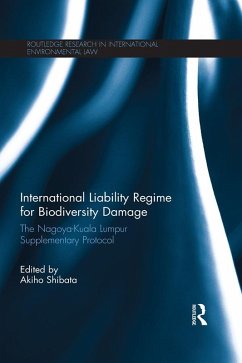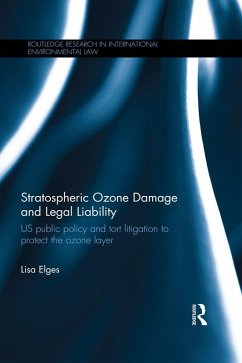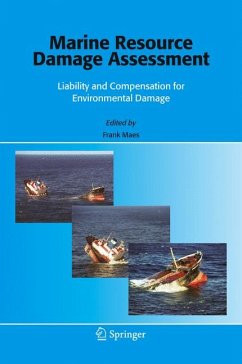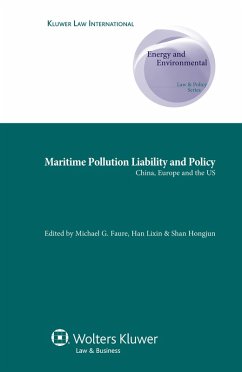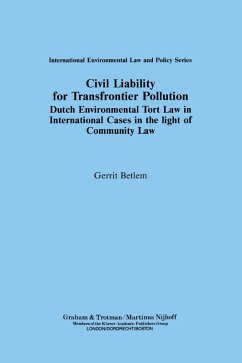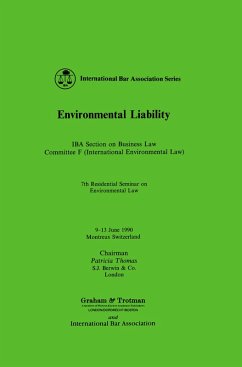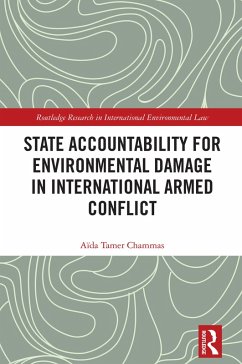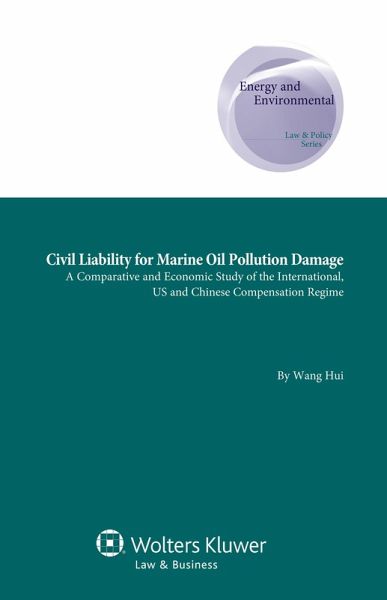
Civil Liability for Marine Oil Pollution Damage (eBook, PDF)
A Comparative and Economic Study of the International, US and Chinese Compensation Regime

PAYBACK Punkte
66 °P sammeln!
This remarkable book - the first in-depth examination of the civil liability regime for marine oil pollution damage from a law and economics perspective - examines the efficiency and effectiveness of the regime, with particular attention to whether it is in fact designed in the public interest or merely a distribution of risks and costs among interested parties. The question is asked: does the liability system give the potential polluter incentives to take precautionary measures to avoid pollution or to reduce the possibility of pollution? The international regime on civil liability for marine...
This remarkable book - the first in-depth examination of the civil liability regime for marine oil pollution damage from a law and economics perspective - examines the efficiency and effectiveness of the regime, with particular attention to whether it is in fact designed in the public interest or merely a distribution of risks and costs among interested parties. The question is asked: does the liability system give the potential polluter incentives to take precautionary measures to avoid pollution or to reduce the possibility of pollution? The international regime on civil liability for marine oil pollution rests on the International Convention on Civil Liability for Oil Pollution Damage (CLC) and the International Convention on the Establishment of an International Fund for Compensation for Oil Pollution Damage (Fund Convention). However, the world's biggest oil consumer and importer - the United States - has ratified neither, preferring its own Oil Pollution Act of 1990 (OPA), and China - currently the world's second oil-consuming country - has not ratified the Fund Convention. Thus it is reasonable to compare the three regimes - international, US, and China - as such a comparative study may reveal some advantages or disadvantages among the three systems. Among the issues raised and tackled head-on by the author are the following: whether the contents of international conventions can be considered as the result of the influence of the various interest groups involve; overview of the regulations of marine pollution; technical standards, rules for operation, professional criteria; to what extent a state may take action against trans-boundary polluting activities; what liability a state may incur for non-action or non-effective action; significance for liability of the charter-party, generally considered the evidence of the hire of a ship, and the bill of lading, considered the evidence of the contract of carriage of goods by sea; the crucial role of the so-called 'International Group' of 13 Protection and Indemnity (P & I) Clubs, non-profit organizations specializing in liability insurance; the main international players - the International Maritime Organization (IMO), the Comité Maritime International (CMI), and industry organizations such as INTERTANKO and the Oil Companies International Marine Forum (OCIMF); the particular regime on offshore facility pollution liability in the United States; port state control; criminal liability; and EU and other regional initiatives.
Dieser Download kann aus rechtlichen Gründen nur mit Rechnungsadresse in A, B, BG, CY, CZ, D, DK, EW, E, FIN, F, GR, HR, H, IRL, I, LT, L, LR, M, NL, PL, P, R, S, SLO, SK ausgeliefert werden.




